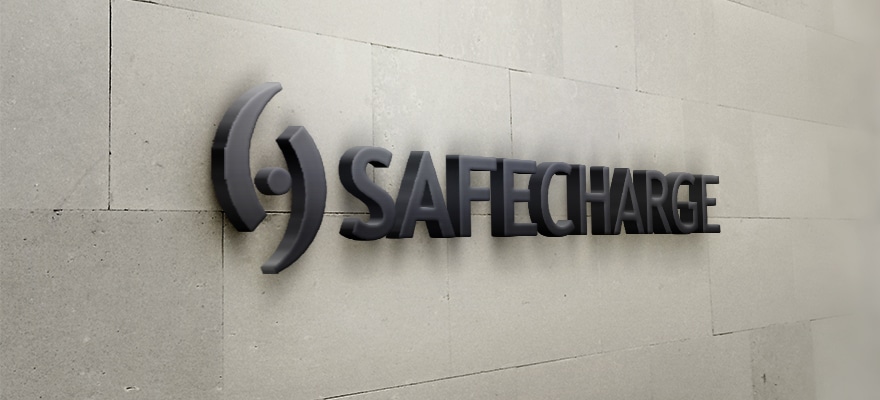Last week, payment services firm, SafeCharge, announced that it was investing €10 million for a 5% stake in German FinTech Group AG. As part of the deal, SafeCharge is partnering with FinTech Group’s BIW Bank subsidiary, which will provide services for SafeCharge’s new Pay.com prepaid banking card initiative. Learning more about the FinTech Group investment and Pay.com, Finance Magnates connected with SafeCharge CFO Ali Khwaja. The opportunity allows our weekly Fintech Spotlight columns to cover both a new product and analyze the ePayment setor.
Future of Payments
With Apple announcing several feature updates to its Apple Pay product this week, our discussion began on the topic of mobile payments. Khwaja noted that his view isn’t mobile versus credit cards as much as electronic payments versus cash. He explained that taking a historical perspective, cash, whether in the form of coins or notes have been in circulation for millennia. In fact, according to data used by Khwaja, cash circulation in the world continues to rise, having increased by 4% last year.
ePayments are growing 18-20% annually - Ali Khwaja
Nonetheless, according to Khwaja, the big story is the emergence of electronic payments, either via credit cards, mobile, or other means; growing 18-20% annually and is grabbing market share from cash transactions. Estimates used by Khwaja pinned electronic payments in the UK and US markets at around 35%.
Khwaja explained that in reality, what ePayment products are, whether a magnetic strip on credit card, chips on a debit card or apps on a smartphone, are simply the storing of a user’s identification to handle a payment transaction. Therefore, the underlying growth is the expansion of means to enable this electronic identification of users; regardless of the medium such as credit cards or mobile devices.
Pay.com
In launching Pay.com, Khwaja explained that SafeCharge was aiming to do what they did for merchants and offer it to consumers. In that regard, SafeCharge provides services for merchants to accept electronic payments. Beginning with credit cards, they have widened the scope of ePayment types they support to match the needs of their customers. Similarly, Pay.com is viewed as an enabler of ePayments, but for consumers; especially those with limited banking availability.

SafeCharge CFO Ali Khwaja
The product operates as a pre-paid debit card which can be used for both online and at physical locations. The card can be funded using cash, bank transfers and debit/credit cards. In addition, the card provides online and mobile banking services for users to initiate online transfers, and review their expenses and deposits.
With the launch, Pay.com joins a growing list of firms that are aiming to evolve banking from a branch-based experience, to one that is online and mobile. The space has attracted both startups and global financial players. Among the largest to enter this market is American Express with its Bluebird banking product, while startups include Moven, and soon to launch Koho.
As a pre-paid card, Pay.com will be focusing its activities on supporting and marketing its services to consumer clients. This contrasts with SafeCharge’s core payment solution business which faces merchants. As a result, Khwaja stated that to increase awareness of the product and get it into the hands of users, SafeCharge would first be marketing it to their existing merchants; using a B2B2C model. An example was the recent announcement that SafeCharge would be providing branded pre-paid cards to PokerStars customers. On these types of relationship, Khwaja said, “They have customers, we have technology, so we can do a deal with them."
BIW Bank and Ongoing Collaboration
In regards to BIW Bank, the recently announced investment is an implementation of the Company’s strategy to further expand its product offering to online and mobile merchants. Khwaja explained that currently SafeCharge holds an eMoney license which allows them to hold money. However, he added that “as a fully licensed bank, it gives us more options Regulation wise.” As such, SafeCharge has plans to launch additional banking services.
How Much Did Pay.com Cost?
With the release of Pay.com, one of the big questions that emerged in the market was the purchase price of such a premium domain. While Khwaja couldn’t comment on specific details of the domain acquisition, he did state, “Pay.com is a premium domain that was acquired several years ago for the purpose of launching premium payment products. It was purchased in accordance with market pricing for such a premium domain name."
Based on previous prices of domain sales of companies in the financial sector such as Investing.com, Invest.com, and Markets.com, the Pay.com domain is estimated to be similarly valued in the seven figure range. It’s worth noting that the acquisition of a premium domain fits within the operational trend of companies of which Tedi Sagi is a major investor, including SafeCharge. Other premium domains affiliated with Tedi Sagi firms include Markets.com, Market.com and Stock.com.
Overall, Khwaja noted that for Pay.com, the premium domain provides them with an easy to understand name for consumers; one that they hope will assist their goal of furthering ePayments to the masses.
Fintech Spotlight is a new column on Finance Magnates devoted to reviewing innovative financial technology companies and sector trends.

















